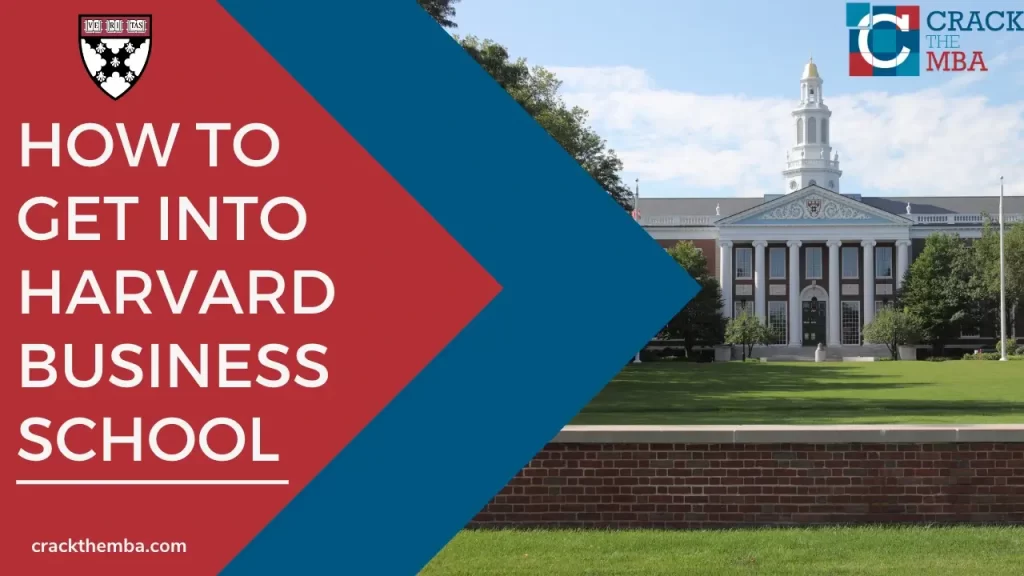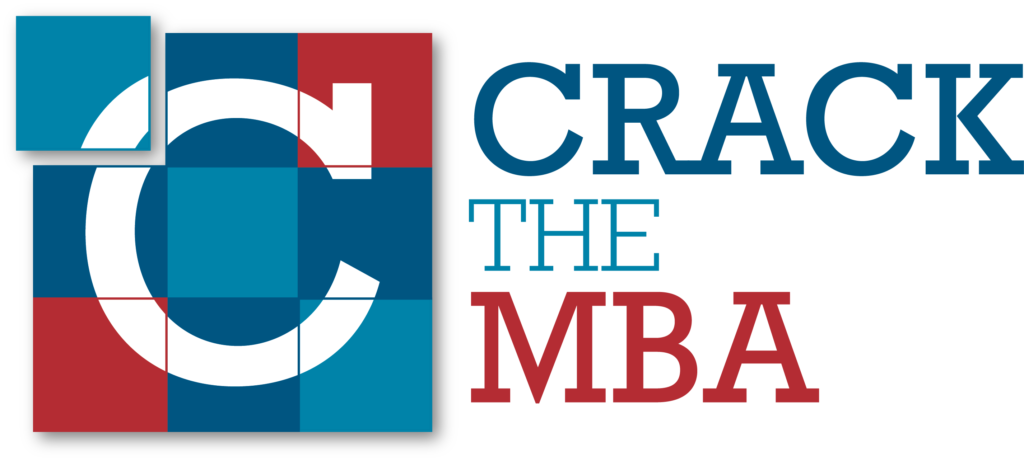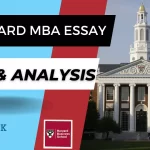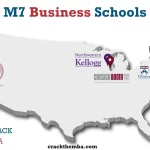How to get into Harvard Business School MBA Program (2025 Guide)
Harvard Business School is one of the most prestigious and well-respected business schools in the world. It can be credited with establishing the world’s first MBA program in 1908, which also makes it one of the most sought-after business schools in the world. However, this popularity also makes its admissions process highly competitive. For Harvard’s MBA Class of 2026, 9856 candidates submitted their applications, and 930 candidates enrolled. That is an enrollment rate of 9.4%. So, how do you get into Harvard Business School, keeping in mind the competitiveness? Keep on reading to know more in this blog post.

- What makes Harvard one of the most sought-after business schools?
- Harvard MBA Class of 2026
- What does Harvard Business School look for in applicants?
- 7 Steps – How to get into Harvard Business School
- Step 1 – Research Harvard Business School Strategically
- Step 2 – Demonstrate Academic Excellence
- Step 3 – Aim for a Top-Tier GMAT or GRE Score
- Step 4 – Write Purposeful Essays, Build a Sharp Resume, and Polish the Application Form
- Step 5 – Gather strong letters of recommendation
- Step 6 – Prepare for the Interview
- Step 7 – Prepare post-interview reflection
- Final Thoughts
What makes Harvard one of the most sought-after business schools?
Let’s first see what makes Harvard Business School so popular among MBA applicants. There are several factors that contribute to HBS’s reputation and popularity:
- History and reputation: Harvard Business School has a long history of producing successful business leaders. Its graduates have gone on to hold top positions at major corporations, start their own businesses, and become influential figures in their fields. This reputation has made the school a sought-after destination for aspiring business leaders. Famous Indian alumni from Harvard Business School (HBS) include:
- Ajit Narain Haksar (first Chairman of ITC; MBA 1948)
- Rahul Bajaj (former Chair of Bajaj Group; MBA 1964)
- P. Chidambaram (former Finance Minister of India; MBA 1968)
- Adil Zainulbhai (former Chairman of McKinsey India, MBA 1979)
- Rono Dutta (CEO, IndiGo; MBA 1980)
- Anand Mahindra (Chairman of Mahindra Group, MBA 1981)
- Naina Lal Kidwai (former Country Head of HSBC India; first Indian woman graduate of HBS; MBA 1982)
- Jayant Sinha (former Minister of State for Civil Aviation; MBA 1992)
- Ravi Venkatesan (former chairman, Microsoft India; MBA 1992)
- Manish Kejriwal (Managing Partner & Founder, Kedaara Capital; MBA 1995)
- Ashish Dhawan (founder, ChrysCapital; founder, Central Square Foundation; MBA 1997)
- Abhijit (Bobby) Bose (head of India, WhatsApp; MBA 2000)
- Neera Nundy (cofounder and Partner, Dasra; MBA 2002)
- Rishad Premji (Chairman, Wipro, MBA 2005)
- Naveen Tewari (founder of InMobi and Glance; MBA 2005)
- Nishant Sharma (cofounder and MD, Kedaara Capital; MBA 2006)
- Radhika Piramal (former MD, VIP Industries; MBA 2006)
- Nisaba Godrej (Exec Chairman, Godrej Consumer Products Ltd.; MBA 2006)
- Anand Piramal (Executive Director, Piramal Group; MBA 2011)
- Parth Jindal (MD, JSW Cement; MBA 2016)
- Teaching Pedagogy (Case Method): Harvard Business School is famous for its teaching pedagogy i.e. the case method. Imagine being in a class with about ninety other students going through an intense discussion based on a 10-20 page case that you read in advance and come to class prepared to discuss. Ahead of the class, you get together with your discussion group, comprised of peers from diverse backgrounds, which helps you prepare for the case discussions. Discussion groups comprise five to six people and meet from 8:00 a.m. to 9:00 a.m. prior to the first class at 9:00 a.m. In the first year or the RC year as it is known, discussion groups are assigned by the school. In the second year or the EC year, you get to pick your own groups or continue with the previously assigned groups, as you all deem appropriate. As you head into the class for the discussion, the faculty member leads this discussion and you want to come in prepared as it could be the day that you get cold-called or asked to kickstart the case discussion. By putting yourself in the shoes of the protagonist in a real-life situation faced by a real company, you make decisions and come to the class ready to defend those very opinions. It often happens that the very protagonists that you read about may be sitting in the class and you get to hear from them about how they thought about things. It may also happen that through the evolution of the discussion, your own perspective may be molded and reshaped. This is the power of HBS’s case method where you gain from the diversity of perspectives learning from the brightest classmates from all over the world. Through your two years, you study some 200 cases, which gives you a lifetime worth of decision-making ability and arms you with the ability to lead your company through change.
- Faculty: The faculty at Harvard Business School is world-renowned, with many experts in their respective fields. The school also attracts visiting professors and lecturers from around the world, further enriching the educational experience. Some famous professors include Michael Porter and Clayton Christensen.
- Curriculum: The school’s MBA program is highly rigorous and focuses on providing a well-rounded business education. It covers a wide range of subjects, including finance, marketing, leadership, and strategy, and requires students to complete a number of hands-on, experiential learning opportunities.
- Alumni Network: The school’s strong alumni network is another factor that attracts students to Harvard Business School. Its graduates are well-connected and this provides access to valuable career opportunities and mentorship to students and alumni. Some famous HBS alumni include George W. Bush, Michael Bloomberg, Jamie Dimon, Sheryl Sandberg, Stephen Schwarzmann, and Ray Dalio.
- Location: HBS is located in the heart of Boston – a vibrant and innovative city that is home to many top companies and organizations. Boston is also closely situated to New York City which is the home to many Fortune 500 companies. This provides students with numerous opportunities to learn from and interact with industry leaders.
- Brand: Finally, Harvard Business School has a strong brand and reputation, which can be a powerful asset in the competitive world of business. The school’s reputation for excellence attracts top students and employers, and its graduates are highly sought after by top companies.
Now that you know what makes Harvard Business School one of the most sought-after business schools, let’s see what kind of candidates find a place in its class. Let’s take a look at the HBS MBA Class of 2024.
Harvard MBA Class of 2026
If you’re aiming for Harvard Business School, understanding the profile of those who’ve already made it can offer powerful insights. While admissions are holistic and qualitative factors like leadership, essays, and recommendations matter significantly, it’s still important to benchmark yourself against HBS’s latest class profile.
Let’s take a look at the numbers for the Harvard MBA Class of 2026 to see where you stand:
Enrollment & Applications
- Applications Received: 9,856
- Total Enrolled: 930
- Enrollment Rate: ~9.4%
Test Scores, GPA & Work Experience
- Average GPA: 3.69 (on a 4.0 scale)
- Average Work Experience: 5 years
GMAT Scores:
- Median Total: 740
- Range (Total): 540–790
- Middle 80% (Total): 700–770
- Median Verbal: 42 | Range: 27–51
- Median Quant: 49 | Range: 35–51
- Middle 80% Verbal: 38–47
- Middle 80% Quant: 45–50
GRE Scores:
- Median Verbal: 163 | Range: 145–170
- Median Quant: 163 | Range: 146–170
- Middle 80% Verbal: 157–168
- Middle 80% Quant: 157–169
Diversity Snapshot
- Women: 45%
- International Students: 35%
- First-Generation College Students: 11%
- Countries Represented: Wide global spread with:
- United States: 65%
- Asia: 13%
- Europe: 8%
- Canada: 3%
- Africa: 2%
- Mexico, Central & South America: 5%
- Middle East: 3%
- Oceania: <1%
Undergraduate Background
- Universities Represented: 296
- Majors:
- Business / Commerce – 24%
- Economics – 19%
- Engineering – 22%
- Math / Physical Sciences – 18%
- Social Sciences – 12%
- Arts / Humanities – 5%
Pre-MBA Industry Breakdown
- Consulting – 18%
- Venture Capital / Private Equity – 16%
- Technology – 12%
- Financial Services – 10%
- Consumer Products / Retail / E-Commerce – 9%
- Manufacturing / Industrial / Energy – 9%
- Health Care / Biotech – 8%
- Nonprofit / Government / Education – 6%
- Military – 5%
- Media / Entertainment / Travel – 4%
- Services – 2%
What This Means for You
Ask yourself: Is your GPA, test score, and work experience in line with these averages or the top 80% range? If yes, you’re in a strong position on the quantitative front. If not, remember HBS evaluates candidates holistically. Outstanding leadership, meaningful impact, unique personal journeys, and powerful storytelling in your essays and interviews can make all the difference.
Now, are there any specific skills or traits that Harvard Business School looks for? Yes, there are.
What does Harvard Business School look for in applicants?
There are 3 characteristics that HBS looks for during the admissions process:
- Habit of Leadership: HBS is interested in people who take ownership at school and work. HBS is looking for evidence of an applicant’s leadership potential. Why? This can help them predict future success and an applicant’s ability to become a future global leader. Given HBS’s mission to educate leaders who make a difference in their world, this is one of the most critical characteristics that they care about.
- Analytical Aptitude and Appetite: HBS relies on the case study method in imparting business education, and therefore, it wants its candidates to have the ability to assess, analyze, and act upon complex information and articulate it in a lively class discussion.
- Engaged Community Citizenship: Collaboration is the essence of whatever you do at Harvard Business School. HBS wants its candidates to be ready to share their experiences and support their colleagues, and in turn, be ready to learn from them.
These 3 characteristics are essential to showing your potential to the HBS admissions committee to get into Harvard Business School. So, what steps can you take to make your profile stronger and worthy of getting an admit to HBS?
Do you want to get into Harvard Business School?
At Crack The MBA, we have helped hundreds of students get into top MBA programs around the world. We would be happy to help you too. Get in touch with us to learn more about our MBA application services.
7 Steps – How to get into Harvard Business School
Getting into Harvard Business School (HBS) is a competitive process, and the school looks for a diverse group of highly qualified and exceptional applicants. It’s a good idea to apply as early as possible, preferably in Round 1. This will give you a better chance of getting accepted and receiving a scholarship, as the school will comparatively see more applications in Round 2.
Here are seven steps you can take to increase your chances of being accepted:
Step 1 – Research Harvard Business School Strategically
Before you can build a standout application, you need to deeply understand what Harvard Business School looks for in its candidates—and how you align with that vision.
Start with the official HBS MBA website. Explore the class profile, curriculum structure, field method, joint degree options, and leadership-focused programs. Dig into the student clubs, campus initiatives, and cross-registration opportunities with MIT, Harvard Law School, and others. The goal? To identify how you would add to the HBS community, and what you’d take away from it.
Next, take your research beyond the screen:
- Connect with HBS alumni on LinkedIn or via MBA forums. Ask thoughtful questions about their experience and what helped their candidacy stand out.
- Attend HBS admissions events, both virtual and in-person. These sessions often include insights directly from the admissions committee, and they’re a great place to clarify what “leadership” means in the context of HBS.
- Reflect on the diversity of the class in terms of industries, geographies, and backgrounds. HBS is not looking for a single archetype; it’s building a class that can learn from each other.
Pro Tip: Reach out to alumni at least 6 months before application deadlines. Most will be more open to helping if they’re not flooded with last-minute requests.
Step 2 – Demonstrate Academic Excellence
Harvard Business School expects its applicants to thrive in a rigorous, analytical learning environment. This starts with your undergraduate academic record.
The average GPA for the Class of 2026 is 3.69, and while there’s no minimum cutoff, a strong GPA from a reputable institution signals your academic preparedness. But it’s not just about the number.
HBS also looks at:
- The rigor of your course load
- Your performance in quantitative and analytical subjects
- Trends in your grades (Did you improve? Did you challenge yourself?)
- Context: Did you work part-time or manage other responsibilities while in school?
If you have grades that are below average or inconsistent, that’s okay, but be proactive. Use the additional section in your application to explain the context briefly and professionally. You can also offset a lower GPA with a strong GMAT/GRE score or by taking additional quantitative coursework online (e.g., through Coursera, HBS Online, or any other online program).
Pro Tip: A high GPA alone isn’t enough. What matters is whether your academic record demonstrates that you can handle the academic intensity at HBS and contribute meaningfully in case discussions.
Step 3 – Aim for a Top-Tier GMAT or GRE Score
Harvard Business School accepts both the GMAT and GRE, and while there’s no minimum required score, your test result plays a key role in demonstrating academic readiness, especially if your undergraduate GPA is on the lower side.
For the Class of 2026, here’s what the numbers look like:
- Median GMAT score: 740
- Middle 80% GMAT range: 700–770
- Median GRE score: 163 Quant | 163 Verbal
- Middle 80% GRE range: 157–169 Quant | 157–168 Verbal
If you’re serious about HBS, you should target a score at or above the median. Not because that number guarantees admission, it doesn’t, but because it gives the admissions committee confidence that you can handle the academic rigor of the MBA program.
If your background doesn’t naturally scream “quant strength” (e.g., humanities major, non-technical job), your GMAT or GRE quant score becomes even more important.
Pro Tip: Plan for buffer time. Many successful applicants take the GMAT/GRE more than once to reach their target score. Start early and leave time for a retake, if needed.
Step 4 – Write Purposeful Essays, Build a Sharp Resume, and Polish the Application Form
The written components of your HBS application are no longer centered around one open-ended prompt. As of the 2025 admissions cycle, HBS now asks candidates to respond to three targeted essay prompts, each designed to evaluate a distinct dimension of who you are.
This shift means you now have more structure, but also less room for generic storytelling. Every word needs to count.
The Three New HBS Essays (Class of 2027)
- Business-Minded Essay (up to 300 words)
“Please reflect on how your experiences have influenced your career choices and aspirations and the impact you will have on the businesses, organizations, and communities you plan to serve.”
→ Use this to connect your past to your future. Show clarity of purpose, mission-driven thinking, and long-term vision. You’re not just chasing titles—you’re building impact. - Leadership-Focused Essay (up to 250 words)
“What experiences have shaped who you are, how you invest in others, and what kind of leader you want to become?”
→ Highlight a few defining moments that shaped your leadership style. Emphasize not just initiative, but how you develop people, create followership, and lead through complexity. - Growth-Oriented Essay (up to 250 words)
“Curiosity can be seen in many ways. Please share an example of how you have demonstrated curiosity and how that has influenced your growth.”
→ HBS wants to see how you learn, evolve, and think deeply. This is not about credentials—it’s about intellectual humility and personal growth.
Pro Tip: Though each essay has a defined focus, collectively they should weave together into a compelling, authentic picture of you. Avoid redundancy. Each essay should add a new layer to your candidacy.
To create a stellar resume, it is important that you highlight your leadership and community initiatives. We strongly recommend that you look at our resume tips and also look at the video with advice from Sarah Lucas at HBS.
An oft-ignored part of the application tends to be the application form, which most candidates defer until the submission is due. However, this section can also contain important information that provides admissions officers with important details about your employment, post-MBA goals, activities, and awards. Therefore, it’s important to allocate sufficient time for this section as well.
Employment History
Post-MBA goals
Step 5 – Gather strong letters of recommendation
HBS looks for recommendations from people who can speak to your character, work ethic, and potential as a business leader. Choose recommenders who know you well and can speak to your strengths and accomplishments. Ideally, your recommender should be the immediate supervisor in your current organization.
Also, make sure that you ask for the recommendation letter in advance by requesting it personally or online. This will help you convey why you want to attend Harvard Business School and what makes you a right fit for the school.
This will also allow you to remind your recommender of your accomplishments and the kind of impact you made on the business or workplace.
HBS has multiple components to its recommendation letter. This includes the recommender’s contact information, a leadership grid, and two essay-type questions. You can get detailed information about the same from our article on MBA letter of recommendation.
Step 6 – Prepare for the Interview
The HBS interview is a non-blind interview. It means that the interviewers have studied your application in detail and are aware of the minutest detail mentioned in your application. Remember that the HBS application is comprehensive. It captures details such as personal information, geographical information, family information, education, employment, awards, activities, and test scores. In the employment section, you will be asked to fill in employer description, role, the reason for leaving/changing organizations, key accomplishments, and the most significant challenge.
Therefore, be on top of things as far as your application is concerned because the interviewers will be.
If you are prepared with all the information, you will feel confident,t and this confidence will eventually show you in a positive light. It will be a 30-minute interview with 25-30 questions, and chances are that you will find yourself in uncharted territory, and that is by design. Your interviewers will want to see if you can articulate confidently when dealing with complex situations/questions, which is also the essence of the case method, the teaching style at HBS.
Therefore, comfort with responding impromptu will be a major asset during your HBS interview.
Step 7 – Prepare post-interview reflection
Once your interview is concluded, you’ll be asked to submit a post-interview reflection within 24 hours. To do this task effectively, make sure you take notes of your conversation immediately after the interview ends. Think about what things you wanted to speak about but didn’t because the conversation moved on or you simply forgot.
Once you’ve jotted down your notes, think about which points you want to expand on and how this point makes you a good fit for the school. Once done, craft your post-interview reflection. Begin by thanking the interviewers and highlighting what you enjoyed during the conversation. Expand on a few topics and add your perspective to those topics that highlight your fit for the school. Conclude with your takeaways from the entire application process.
Remember to keep it short and sweet, and full of positivity.
Final Thoughts
Overall, the key to getting into HBS is to present yourself as a well-rounded, highly qualified, and accomplished individual who is ready to take on the challenges of business school and make a positive impact in the world.
Since the application process is highly competitive, getting into Harvard Business School requires hard work, grit, and perseverance. It’s also a time-consuming process that requires an iterative approach. If you are unclear about any aspect of the process, take the help of an MBA admissions consultant. We can help you get into Harvard Business School with our decade-long expertise and experience in admissions consulting. Get in touch with us to get started.
Do you want to get into Harvard Business School?
At Crack The MBA, we have helped hundreds of students get into top MBA programs around the world. We would be happy to help you too. Get in touch with us to learn more about our MBA application services.
Author
Related Posts:
Recent Posts
Archives
Ready for Expert Guidance?
Get personalized support to craft your winning MBA application.
Schedule Free Consultation






